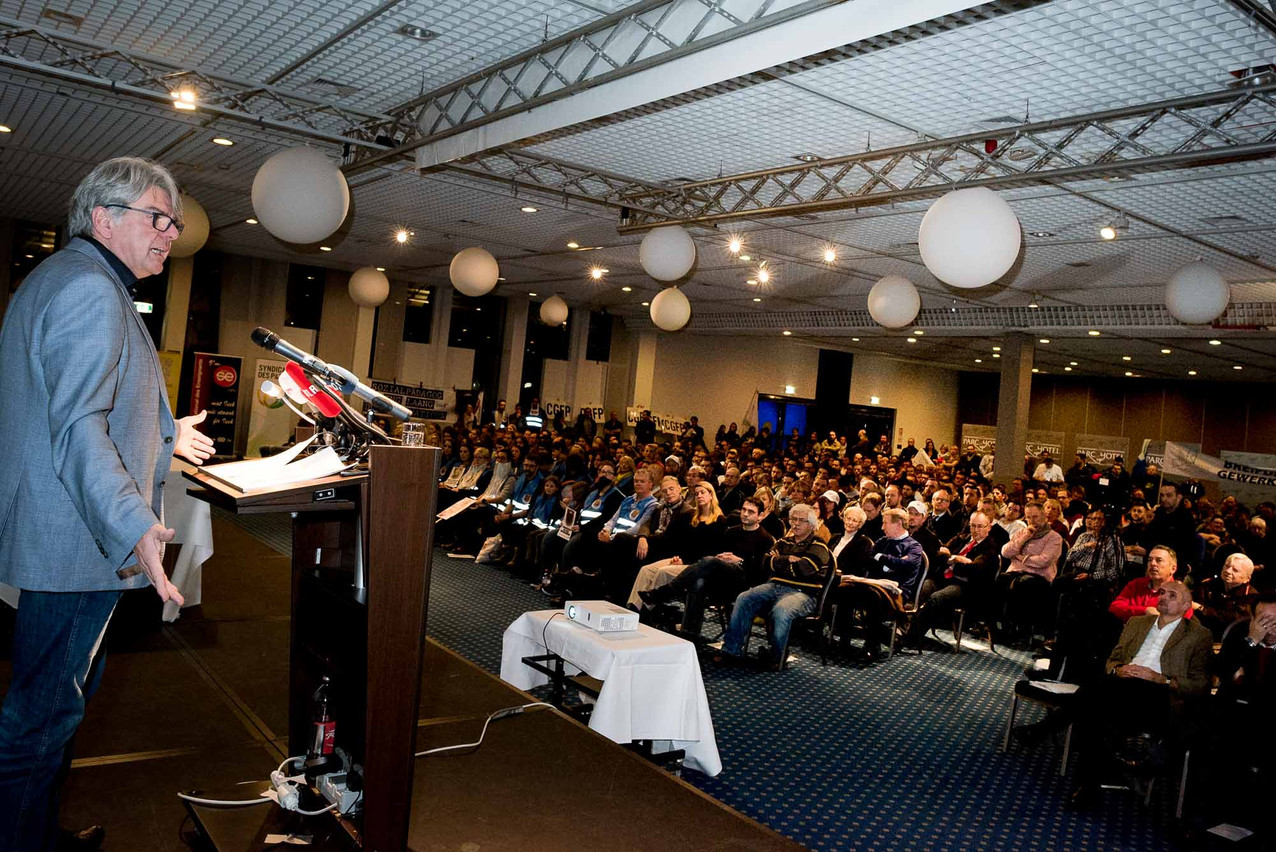Around 600 people came to the protest in Dommeldange on Monday 27 November. The head of the union, Romain Wolff, reiterated the demands of not opening the civil service to non-Luxembourg nationals and of scrapping the so-called 80-80-90 rule for civil service trainees.
He called on all political parties to take publicly declare their positions as soon as possible on the CGFP’s demands, and expected them to feature in the election manifestoes.
In Luxembourg, the civil service union is a powerful player. Entry, salary, benefits and working conditions in the public sector are often protracted and arduous negotiations with any government.
The budget draft law for 2018 is currently debated in parliamentary committees. It includes the promise of recruiting more than 1,200 new staff in the civil service.
More non-nationals in the civil service?
Previously, the minister in charge of the civil service, Dan Kersch, floated the idea of letting non-Luxembourg residents into the civil service because of the shortage of staff in certain areas. Kersch had argued that, at 300,000, the pool of potential recruits was too small, as half of the resident population does not have Luxembourg citizenship. Currently, about 6% or 7% of the civil service are non-Luxembourg nationals.
The failure rate at the entrance exams is around 80%. Many public bodies complain of staff shortages and having to pay overtime.
The CGFP countered that this would not solve any problems, but instead create others. Wolff added that the language requirements were an essential element of providing good public service to the population. The CGFP advocated, instead, a reform of the civil service exam and better preparation of candidates.
In an interview with RTL on Monday evening, Kersch said that an EU directive obliged the member states anyway to accept EU citizens. The language requirements would not be relaxed, he insisted, but there should be a sector by sector analysis of where the civil service could be opened.
He added that:
“If I had the choice between a Luxembourg doctor and a French doctor, the choice would be simple. If I had the choice between a French doctor and no doctor, I’ll take the French doctor.”
Interns: scrap 80-80-90
The present agreement between the government and the CGFP set out that civil service interns would be paid 80% of the regular initial salary for their post for the first two years, and in the third year, they would earn 90%.
The CGFP has already called to scrap this reform in October, arguing the interns had to work 100% and take classes on top of that during their training period. Wolff wanted a “reform of the reform”, because it had been promised that the training system would be overhauled, which never happened. The CGFP has only agreed to it because of the financial crisis, but there was no need for it anymore.
Kersch countered that this topic had not been raised in the last negotiations on the wage agreements, and that it could certainly not be finished before the next parliamentary elections, because it included significant financial implications (+€40 million).
Abolish evaluations
The trade union also criticised the current system of evaluations of civil servants, but Kersch stated that the financial implications had already been scrapped, and that they would be done at most 3 to 4 times in a civil servant’s career.
Kersch offered instead a “fundamental discussion on reforming the civil service.”
